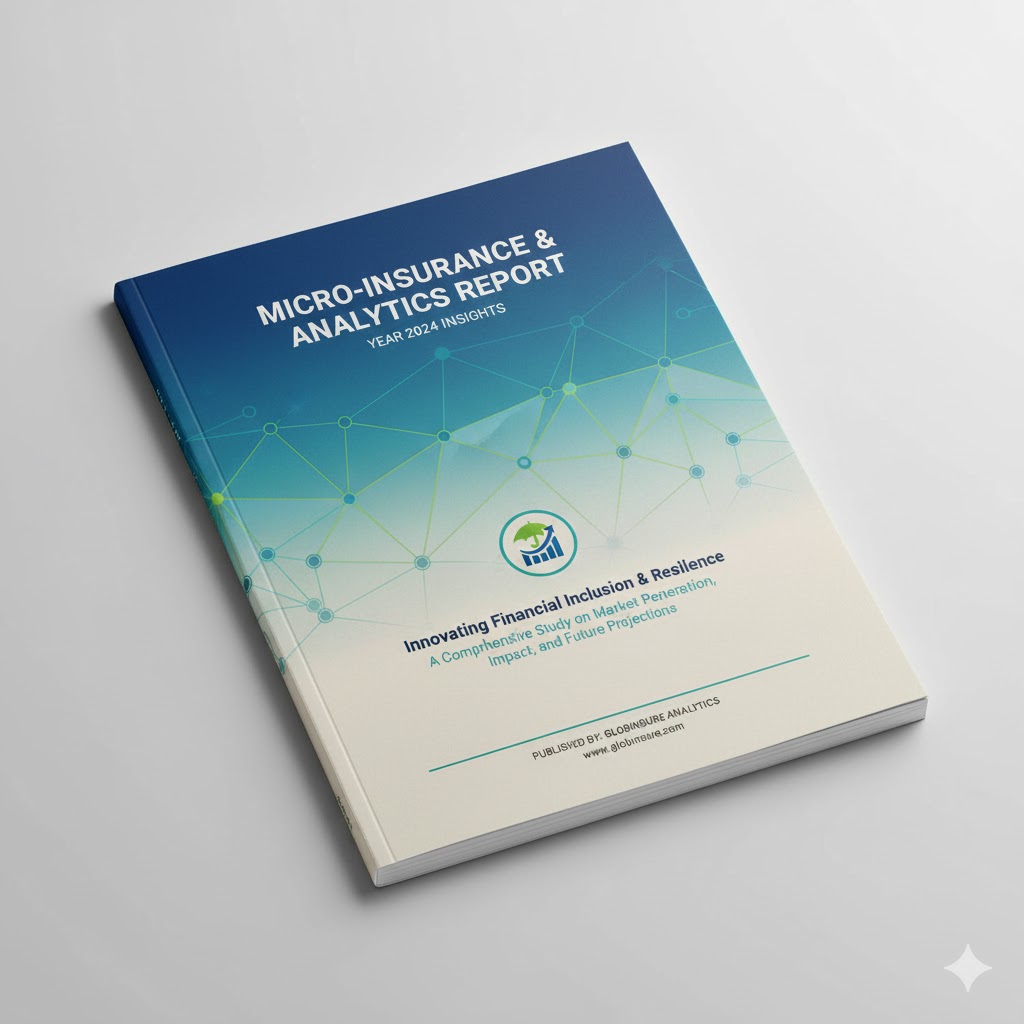Displaying 31 - 45 of 53

Making climate risk microinsurance work. Case Study: Green Delta Insurance Company (GDIC), Bangladesh
Making climate risk microinsurance work: Green Delta Insurance Company in Bangladesh. This case study explores the origin, design, and delivery of Green Delta's agricultural microinsurance program. It reviews pricing mechanisms, subsidy structures, operational challenges, delivery models, and real-world performance results. The analysis offers key lessons for building climate resilience through private-public partnerships in emerging markets.

Making climate risk microinsurance work. Case Study: Kenya Agriculture Insurance Program (KAIP) with APA, Kenya
Information on the Kenya Agriculture Insurance Program developed in partnership with APA Insurance. The overview includes pricing structures, government subsidy mechanisms, challenges in implementation, delivery models, and overall performance metrics. The case outlines key lessons learned from executing a national climate risk microinsurance scheme in a Sub-Saharan African context and provides insight into scaling agricultural resilience through public-private collaboration.
Date Issued
2021
Topics
Region

Making Climate Risk Microinsurance Work. Case Study: MiCRO & Aseguradora Rural (AR), Guatemala
Partnership between MiCRO and Aseguradora Rural to deliver parametric climate microinsurance to smallholder farmers and microentrepreneurs in Guatemala through bundled loans.
Date Issued
2022
Topics

Making climate risk microinsurance work. Case Study: Philippine Crop Insurance Corporation (PCIC), Philippines
Case study of the Philippine Crop Insurance Corporation (PCIC) and its role in climate risk microinsurance. This diagnostic overview outlines PCIC's origin, goals, and subsidy model, and examines the challenges and performance of its delivery system. The paper also highlights pricing strategies, key operational hurdles, and practical lessons learned — contributing to a broader understanding of how public sector agricultural insurance can support resilience in Asia.

Making Microinsurance Work, Scale2Save Learning Paper
Making Microinsurance Work: This learning paper by Scale2Save explores the challenges affecting the uptake of microinsurance across emerging markets. Drawing from real-world case studies in Côte d'Ivoire and Nigeria, it identifies key barriers and presents practical strategies to boost adoption. The report highlights innovative distribution approaches, customer education tactics, and partnership frameworks that drive scale and sustainability for inclusive insurance services.
Date Issued
2021
Topics
Products
Region

MALAYAN INSURANCE, PHILIPPINES - The case for insuring women for a better tomorrow
This World Bank report analyzes how Philippine insurers adapted to COVID-19 and how their inclusive insurance models helped maintain resilience for over 38 million microinsurance policyholders. The study highlights product innovations, digital transformation, and lessons for future crisis response through inclusive insurance strategies.
Date Issued
2020
Topics
Region

MiCRO / SBS / Bancamía – Boosting Resilience for Microentrepreneurs
In 2019, MiCRO and SBS Seguros, in partnership with Bancamía, launched "My Protected Investment", a microinsurance product for SMEs that combines index-based and traditional coverage. Three years after Colombia's first parametric insurance launch, the initiative had already reached almost 120,000 low-income beneficiaries, providing protection against hazards such as excess rain, drought, and earthquakes, while expanding access to underserved urban and rural clients.

Microinsurance and Social Protection: Fiji Country Case Study
WFP and UNCDF piloted cyclone parametric insurance in Fiji for ~325 vulnerable households. This macro–micro model enabled payouts via mobile wallets within 3–5 days after disasters, offering financial protection to the poorest social welfare recipients.

Nepal: Introducing index-based insurance for flood-prone communities
Practical Action developed a flood index insurance for Western Nepal smallholder farmers. Features bundled services, cooperative-based sales, and payouts for crop loss after severe floods.

OKO for UN WOMEN & UNCDF: Case study
An index-based crop insurance product tailored specifically for women smallholder farmers in Mali. This inclusive approach improves gender equity and strengthens financial protection for rural women by providing climate-resilient risk coverage. The model aims to address both agricultural vulnerability and structural gender gaps in access to insurance.
Date Issued
2022
Topics
Region

Pioneer Microinsurance: Building a Business around Positive Customer Experience Pays Off
Pioneer Microinsurance in the Philippines built a strong customer-centric culture by leveraging client data and insights and embedding customer-focused behaviors across the organization. This approach improved the customer experience, strengthened client value, and drove significant business growth, including higher policy renewals and expanded outreach.
Date Issued
2018
Topics
Products
Region

Promoting access to insurance for people with disabilities and small and micro entrepreneurs – The case of El Salvador
In El Salvador, most small farmers and micro-entrepreneurs face frequent economic and climate shocks without adequate insurance. To bridge this gap, the World Food Programme and local partners are piloting an innovative insurance solution covering over 950 farmers and micro-entrepreneurs (46% women) against business interruption caused by excess rainfall, drought, or earthquakes.

Rashtriya Swasthya Bima Yojana (RSBY) – India
India's national public health insurance scheme for the poor, offering smart card–enabled, cashless hospitalization to over 37 million low-income families. This flagship initiative aims to enhance access to healthcare and financial protection for the most vulnerable populations across the country.
Date Issued
2015
Topics

Segurísimo, developing inclusive insurance in Colombia
SEGURÍSIMO is a low-cost, easy-to-claim modular insurance product designed to serve vulnerable and traditionally excluded populations in rural areas. It offers coverage for both the policyholder and the beneficiary, emphasizing accessibility and inclusivity. The product's modular design allows flexibility in tailoring benefits, and its streamlined claims process helps reduce barriers to access. This case reflects an impactful initiative in Colombia aimed at enhancing social protection for underserved groups.
Date Issued
2022
Topics
Products

Skyline Partners: Protecting Jamaican Credit Unions from Tropical Cyclones with FatTrack™ Parametric Insurance: Timely Payouts During Hurricane Beryl
The document presents a case study on Skyline Partners' FatTrack™ parametric insurance solution, designed to protect Jamaican Co-operative Credit Unions (JCCUL) from financial risks associated with major hurricanes. Utilizing independently reported wind field data, the solution offers precise and timely payouts, as demonstrated during Hurricane Beryl.
Date Issued
2025
Topics
